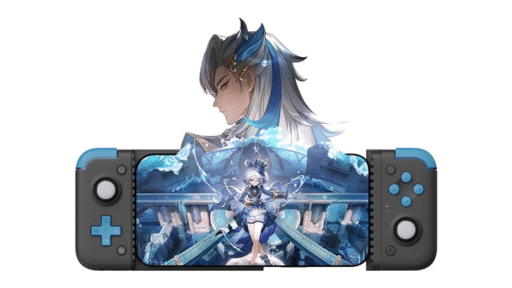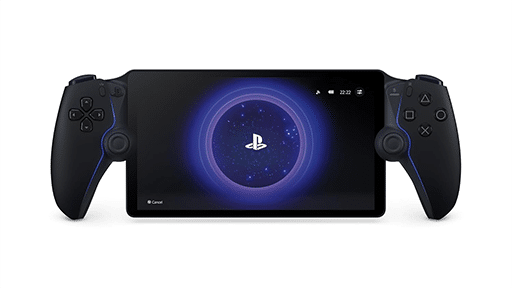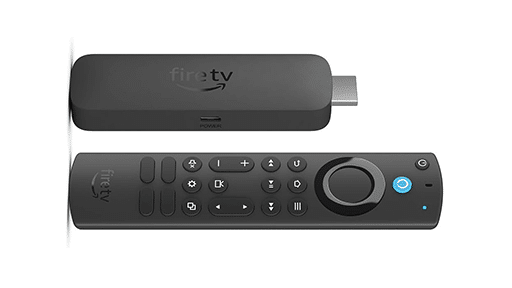
The universe is made of stories, not of atoms.
Muriel Rukeyser
GeForce NOW, not content with merely flexing its ray-tracing muscles, has decided to flex its narrative pectorals too. The cloud gaming titan has added As Dusk Falls and Tell Me Why to its library, presumably in an attempt to make us feel things other than carpal tunnel syndrome. This move is more significant than finding an Easter egg in a Hideo Kojima game.
For too long, cloud gaming has been the domain of twitchy shooters and games where the story is as deep as a puddle in the Sahara. But with these additions, GeForce Now is saying, “Hey, maybe there’s more to gaming than just tea-bagging noobs and grinding for loot.” It’s a refreshing change, like finding out your favorite fast-food joint now serves caviar.
The inclusion of narrative-heavy games in cloud services is crucial. It’s not just about catering to story nerds like myself, who treat dialogue options like a multiple-choice exam. It’s about legitimizing gaming as a storytelling medium to a broader audience. Cloud gaming makes these experiences more accessible, allowing players to jump into rich narratives without needing a rig that could double as a space heater.
Moreover, it’s a testament to the evolving landscape of gaming. As our medium matures faster than milk left out in the sun, it’s high time cloud services reflected the diversity of experiences games can offer. From the heart-wrenching choices of “Life is Strange” to the galaxy-spanning epics of “Mass Effect”, narrative games have proven they can hang with the best that literature and film have to offer. Now, thanks to GeForce Now, you can have your cake and eat it too – all without installing a single game.
As Dusk Falls: a Comic Book Fever Dream
First up is “As Dusk Falls”, a game that looks like what would happen if a graphic novel had a torrid affair with a film noir and gave birth in an art house cinema. The game’s unique visual style – a series of static images that transition with all the grace of a PowerPoint presentation on psychedelics – is initially jarring. But like an acquired taste (I’m looking at you, blue cheese), it grows on you faster than mold on that sandwich you forgot in your backpack.
The premise? A family road trip gone wrong, a robbery gone worse, and enough tension to make a suspension bridge jealous. It’s like someone took a Coen Brothers script, sprinkled it with some choice-based gameplay, and served it up on a platter of moral ambiguity.
As I navigated through the opening chapters, making choices that would probably make my therapist raise an eyebrow, I couldn’t help but draw parallels to my beloved Mass Effect. Both games excel at making you feel the weight of your decisions, though thankfully in “As Dusk Falls”, those decisions are less “save the galaxy” and more “should I trust the sweaty guy with the gun?” A refreshing change of pace, really.
The character dynamics are intriguing, the stakes feel real, and the narrative hooks sink in deep. But unlike Commander Shepard’s sprint across the Citadel (which we now know was just a clever camera trick), the pacing in “As Dusk Falls” is deliberate, allowing tension to build like a pot of water on a stove that you’ve forgotten about while scrolling through your phone.
Tell Me Why: Twin Peaks Meets Choose Your Own Adventure
Next up is “Tell Me Why”, Dontnod’s latest foray into the realm of choice-driven narratives. Known for reducing players to emotional puddles with “Life is Strange”, Dontnod seems determined to prove that lightning can indeed strike twice – or in this case, thrice if we’re counting “Life is Strange 2”.
Set in the frosty landscapes of Alaska, “Tell Me Why” follows twins Tyler and Alyson as they unravel the mysteries of their past. It’s like “Frozen”, if Elsa and Anna swapped their magical powers for emotional trauma and a hefty dose of small-town secrets. The game tackles heavy themes with the delicacy of a bull in a china shop – which is to say, it’s refreshingly direct and unapologetic.
As I delved into the early chapters, I found myself drawn into the twins’ story like a moth to a flame – if the flame was a complex narrative about identity, family, and the unreliability of memory. The game’s handling of Tyler’s journey as a transgender man is particularly noteworthy. It’s treated with a nuance that makes most TV shows look like they’re still figuring out how to use a rotary phone.
The twin bond mechanic, allowing players to tap into shared memories, is more than just a fancy gameplay gimmick. It’s a clever metaphor for the subjective nature of memory and perception. It’s like that time my sister and I argued about who ate the last cookie – except with higher stakes and better graphics.
The Weight of Digital Decisions
There’s a reason I’m drawn to these choice-driven games like a moth to a flame – and it’s not just the pretty graphics or the promise of multiple endings. It’s because every time I make a choice, I feel the weight of my real-world failures pressing down on my shoulders.
You see, in these pixelated realms of moral ambiguity, I’m not just playing a game. I’m living out the road not taken, the words left unsaid, the apologies never uttered. Each decision point is a mirror, reflecting back the countless moments in my life where I zigged when I should have zagged, where I stayed silent when I should have screamed.
Remember that time I didn’t stand up for my friend in high school? In “Tell Me Why”, I can be the defender I never was. The relationship I let slip away because I was too afraid to be vulnerable? In “As Dusk Falls”, I can take that leap of faith. These games offer me a thousand tiny redemptions, wrapped up in code and choice matrices.
But it’s more than just wish fulfillment. It’s catharsis. It’s therapy. With each choice, I’m excavating my own psyche, confronting my fears, my regrets, my what-ifs. The stakes may be virtual, but the emotions are painfully real.
And sometimes, in the quiet moments between dialogue options, I wonder: am I really making these characters’ choices, or are they making mine? Am I shaping their stories, or are they reshaping me?
There’s a particular kind of ache that comes with realizing you’ve made the wrong choice in these games. It’s an echo of real-world regret, a phantom pain from an amputation that never happened. But unlike life, here I can reload, retry, rewrite. It’s a bittersweet power, a digital do-over that only heightens the permanence of our real-world decisions.
So yes, I’m obsessed with choice-driven narratives. Because in this world of point-and-click morality, I’m not just playing a game. I’m piecing together the fragments of my own humanity, one heart-wrenching decision at a time. And if I shed a tear or two along the way? Well, that’s just the price of digital redemption.

Narrative Nirvana or Story Overload?
As GeForce Now expands its narrative offerings, one can’t help but wonder: are we entering a golden age of cloud-based storytelling, or are we just trading one form of button-mashing for another?
On one hand, the addition of games like “As Dusk Falls” and “Tell Me Why” to GeForce Now’s library is a clear win for story enthusiasts. It’s a sign that the platform recognizes the value of diverse gaming experiences, beyond the realm of competitive multiplayer and endless grinding.
On the other hand, as we’ve seen with streaming services like Netflix, quantity doesn’t always equal quality. There’s a risk of narrative fatigue, where players might find themselves drowning in a sea of choice-driven stories, each claiming to be more emotionally impactful than the last.
But perhaps that’s a risk worth taking. After all, isn’t the point of stories – whether they’re told through books, films, or yes, even cloud gaming services – to expose us to new perspectives, challenge our assumptions, and occasionally make us ugly-cry into our controllers?
As always, remember to follow us on our social media (e.g., Threads, X (Twitter), Bluesky, YouTube and Facebook) to keep up with the latest news. This website contains affiliate links. We may receive a commission when you click on these links and make a purchase, at no extra cost to you. We are an independent site and the opinions expressed here are our own.








